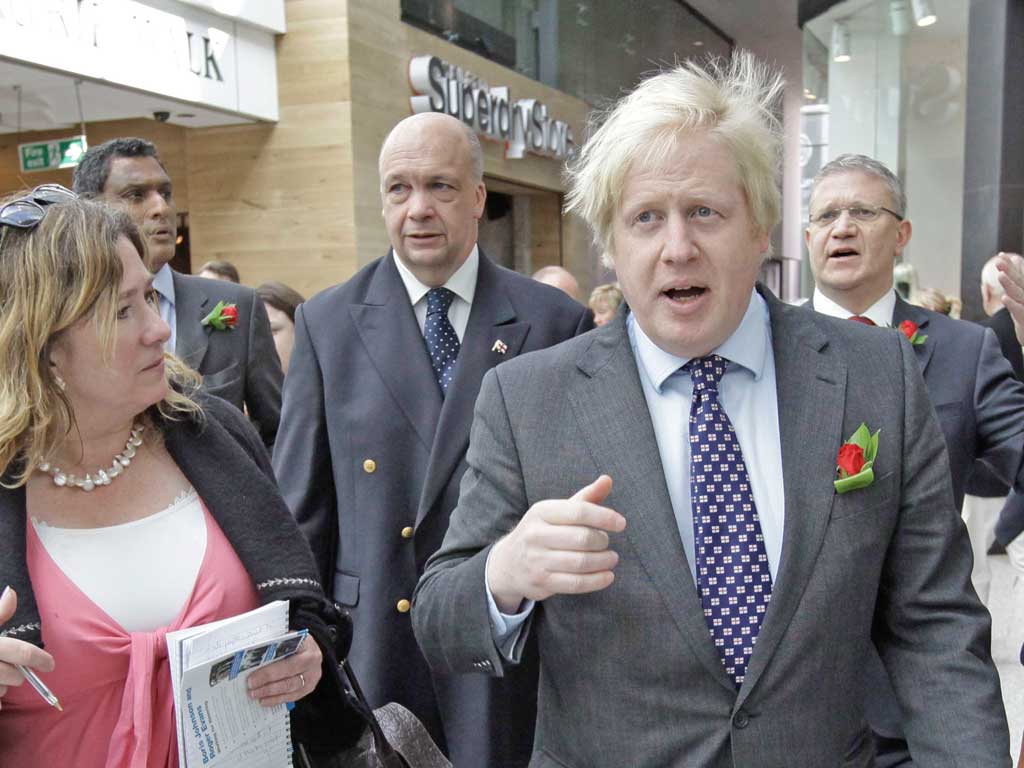High energy bills, tax and the price of petrol are top voters' concerns
Research shows most see Tories as the rich people's party, while Labour can't be trusted to run economy, reports Oliver Wright

Your support helps us to tell the story
From reproductive rights to climate change to Big Tech, The Independent is on the ground when the story is developing. Whether it's investigating the financials of Elon Musk's pro-Trump PAC or producing our latest documentary, 'The A Word', which shines a light on the American women fighting for reproductive rights, we know how important it is to parse out the facts from the messaging.
At such a critical moment in US history, we need reporters on the ground. Your donation allows us to keep sending journalists to speak to both sides of the story.
The Independent is trusted by Americans across the entire political spectrum. And unlike many other quality news outlets, we choose not to lock Americans out of our reporting and analysis with paywalls. We believe quality journalism should be available to everyone, paid for by those who can afford it.
Your support makes all the difference.Reducing energy bills, fuel duty and the overall tax burden are the key concerns of voters going into this Thursday's local elections, a study suggests today.
Research by the think tank Policy Exchange found that close to two-thirds of the public believe the Conservatives are the party of the rich, but more than half think Labour still cannot be trusted to run the economy.
To address these concerns, Labour swing voters said the party needed to pledge to control welfare spending and stop people "ripping off" the system. Swing Conservative voters wanted the party to reduce the cost of living for ordinary people.
With only three days of campaigning before the polls open, politicians in all three main parties are downplaying expectations.
While Labour is expected to gain significant numbers of seats in urban areas and the North, the party is bracing itself to lose control of Glasgow to the SNP and fail to take back the Mayor's job in London. A net gain of more than 700 council seats would generally be regarded as a good night for Ed Miliband, but if Labour takes fewer than 400 seats the results would reopen questions on his leadership.
The study by Policy Exchange looked in detail at the political landscape across the country and in particular difference in perceptions between the North and South.
It found the Tory lead among people in the rural south is 42 per cent, but Labour's lead in northern cities is 43 per cent. In the rural north the Conservative lead is 10 per cent, while Labour is ahead in London.
But voters across the UK expressed high levels of anti-political sentiment, with 81 per cent saying politicians did not understand the real world. When asked what political priorities should be, half said reducing energy bills and 43 per cent reducing fuel duty.
Neil O'Brien, director of Policy Exchange, said it was too neat to talk about a political north-south divide.
"It's certainly true that the Conservatives do better in the south and Labour in the north, but within these regions there are huge differences," he said. "If you took the TransPennine Express from Liverpool to Newcastle you would find that 13 of the stops are in Conservative-held seats and 19 in Labour. It is in the northern cities specifically that the Conservatives do badly rather than the North as a whole." He added: "The results of our research show that political parties need to focus on addressing cost-of-living issues such as reducing energy bills and the price of petrol rather than broader issues affecting the state of the nation. The evidence also suggests neither Labour nor the Conservatives have succeeded in appealing to ordinary working people."
Meanwhile, a poll commissioned by former Conservative Party Treasurer Lord Ashcroft found just 4 per cent of black voters and 7 per cent of Asian voters identify with the Tories. The poll, of more than 10,000 people, underlines the problems facing Conservative attempts to win an outright majority at the next election with Britain's ethnic-minority groups now accounting for about 10 per cent of the country's population.
Previous research by the Tories suggest many ethnic minority voters are put off by its brand.
This would appear to be backed up by Lord Ashcroft's findings. Nearly 70 per cent of black voters and 55 per cent of Asians polled thought Tory politicians looked down on people from different backgrounds more than those from other parties.
Join our commenting forum
Join thought-provoking conversations, follow other Independent readers and see their replies
Comments